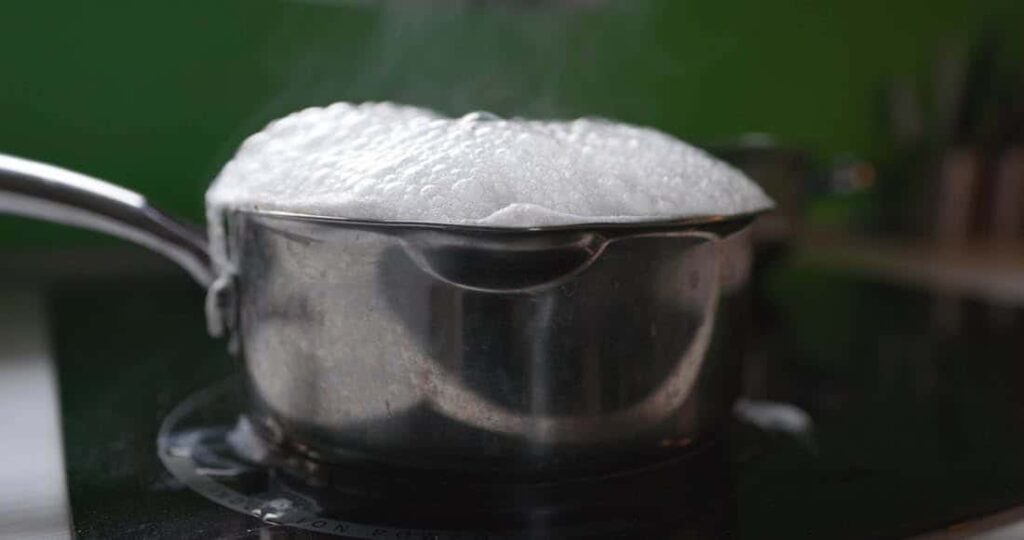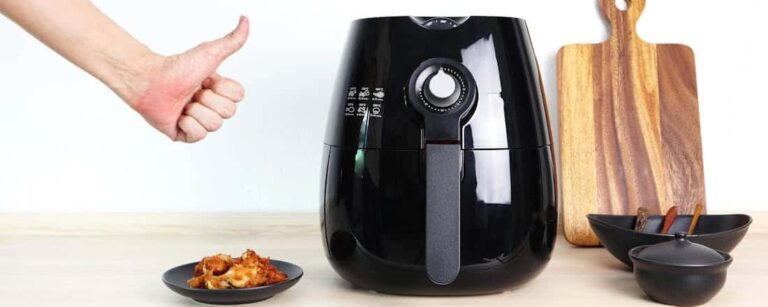Ouch! If you don’t pay attention momentarily, your rice, pasta, or potato pan will boil over. After dinner,, you can also scrub your stove. Fortunately, there are several tricks to prevent your pans from boiling over. Read quickly, and you will never have to worry about it again!
This article shows you four ways to prevent your pans from boiling over. What do you need?
- A wooden spoon
- A lid
- Some oil or butter
- A little patience
Lifesaver: a wooden ladle
A wooden spoon is not only useful for stirring the pots; it can also prevent the pot from boiling over. How? You place the spoon across the pot. The bubbles that form when the water boils burst against the wood. This is something you may have learned in chemistry class. The bubbles of water burst because the material, the dry wooden spoon, is hydrophobic. And because the bubbles are about 100°C and come into contact with material that is less hot, the bubbles become liquid again. In liquid form, water is heavier than air, which causes it to fall back into the pot.
You can’t do this trick with hot material, like metal. Only put the ladle on the pan when the water is already boiling, not immediately when you put the pan on the stove. This prevents the ladle from getting hot while cooking. Thanks to this tip, your hob, whether electric or gas, stays clean.
Lids at an angle!
If you put a pan lid on the pan, the heat causes pressure from steam to build up which cannot escape. Some foods, such as potatoes and rice, cause foaming when cooking. The foam rises quickly. The result: the water quickly boils over and ends up on your hob.
You prevent too much pressure from building up and foam from escaping from the pan by placing the lid at an angle on the pan. Foam and bubbles stay in the pan. And that saves you a lot of fussing and cleaning.
💡Is the lid of the pan shifting? Hold it at an angle on the pan by attaching a wooden clip to the side of the pan so that the lid cannot fall flat on the pan.
Oil or butter: spread it on!
Tip number 3: spread oil, baking spray, or butter on the edge of the pan, up to where the water may reach. This greasy layer creates a border. The bubbles cannot adhere to the pan and therefore do not rise out of the pan. Take a piece of kitchen paper, dip it in some butter or oil, or use the baking spray. Grease the pan with the greased kitchen paper or spray with the baking spray. Do this before you start cooking because if you wait until the water boils, it will no longer have any effect.
💡You can also use butter in another way as an anti-boilover agent: throw a knob of butter into the cooking water.
Do not set the heat source too high
An open door: you can also prevent boiling over by simply not setting the heat or the temperature of the hob too high. Lower the heat in between as soon as you notice the bubbles rising. But for this, it is important that you keep a close eye on the cooking and not text your best friend in the meantime. And you have to be patient: the cooking itself will take a little longer.








